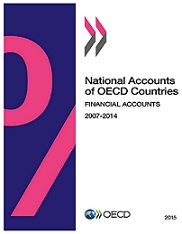Glynos, Jason, Voutyras, Savvas, (2016), “Ideology as blocked mourning: Greek national identity in times of economic crisis and austerity”, Journal of Political Ideologies, 15 July This article approaches the 2010–2014 economic crisis in Greece from the perspective of loss and mourning, critically exploring what questions and insights this provokes. We argue first that the rhetoric of mainstream political and media elites has been instrumental in framing responses to the Greek economic crisis in …Read More
What Makes a Good ʽBad Bankʼ? The Irish, Spanish and German Experience
Cas, Stephanie Medina , Peresa, Irena, (2016), “What Makes a Good ʽBad Bankʼ? The Irish, Spanish and German Experience”, European Commission, Discussion Paper 036, September This paper examines the experience of three asset management companies (AMCs) or ʽbad banksʼ established in the euro area following the 2008 global financial crisis. Specifically, it studies NAMA, Sareb and FMS Wertmanagement (FMS). These AMCs were set up to purchase growing nonperforming loans on banks’ …Read More
Public investment stimulus in surplus countries and their Eurozone spillovers
Veld, Jan in ‘t, (2016), “Public investment stimulus in surplus countries and their Eurozone spillovers”, VoxeEU, 9 September The spillover effects of a fiscal stimulus in normal times are likely to be small, at best. This column argues, however, that when interest rates are stuck at the zero lower bound and monetary policy does not offset the expansion, public investment in surplus countries could have significant positive GDP spillovers to the …Read More
National Accounts of OECD Countries, Financial Accounts 2015
OECD, (2016), “National Accounts of OECD Countries, Financial Accounts 2015”, OECD Publishing, 2 September The National Accounts of OECD Countries, Financial Accounts includes financial transactions (both net acquisition of financial assets and net incurrence of liabilities), by institutional sector (non-financial corporations, financial corporations, general government, households and non-profit institutions serving households, total economy and rest of the world) and by financial operation. Country tables are expressed in national currency. Data …Read More
The Impact of Brexit on the EU Budget: A non-catastrophic event
Núñez Ferrer, Jorge, Rinaldi, David, (2016), “The Impact of Brexit on the EU Budget: A non-catastrophic event”, CEPS, 7 September Given that the UK is one of the largest economies in the Europe Union – with per capita income above the EU average and therefore a net contributor – there have been concerns that the country’s decision to leave the EU could strongly impact the EU budget. On closer scrutiny, however, this …Read More
Increases in the retirement age and labour demand for youth
Boeri, Tito, Garibaldi, Pietro, Moen, Espen (2016), “Increases in the retirement age and labour demand for youth”, VoxEU, 8 September The Eurozone’s sustained rise in youth unemployment since 2008 threatens to create a ‘lost generation’. This column presents evidence that this is, in part, an unintended consequence of pension reforms in southern Europe that locked in older workers. In future, reforms that create flexible retirement ages alongside variable pension levels could …Read More
European banks under stress (tests): Which remain the most resilient?
De Groen, Willem Pieter, Gros, Daniel, (2016), “European banks under stress (tests): Which remain the most resilient?”, CEPS, 11 August The latest round of stress test conducted by the European Banking Authority for 51 large banking groups showed huge differences in the degree to which a shock, or so-called adverse scenario, would impact different banks. We find that banks with a high exposure to sovereign risk and especially those with many non-performing loans …Read More
Key Findings from the ECRI Statistical Package 2016
Musmeci, Roberto, (2016), “Key Findings from the ECRI Statistical Package 2016”, CEPS, 18 August The ECRI Statistical Package 2016, Lending to Households and Non-Financial Corporations, offers an extensive and detailed overview of the credit market in the EU, providing data on the total lending extended by monetary financial institutions (MFIs) to domestic households and non-financial corporations (NFIs) in EU countries over the 1995-2015 period. The 2016 edition also provides data on …Read More
The long and winding road to fiscal adjustment: How the IMF judges austerity programmes
Hinterleitner, Markus, Sager, Fritz, Thomann, Eva, (2016), “The long and winding road to fiscal adjustment: How the IMF judges austerity programmes”, LSE Europpblog, 6 September IMF judgements on whether government austerity programmes can be successfully implemented are carefully followed by international financial markets. Markus Hinterleitner, Fritz Sager and Eva Thomann analyse the way the organisation has judged the credibility of austerity programmes in 14 European countries. They find that the IMF …Read More
OECD Sovereign Borrowing Outlook 2016
OECD (2016), “OECD Sovereign Borrowing Outlook 2016”, OECD Publishing, 6 September The OECD Sovereign Borrowing Outlook provides regular updates on trends and developments associated with sovereign borrowing requirements, funding strategies, market infrastructure and debt levels from the perspective of public debt managers. The Outlook makes a policy distinction between funding strategy and borrowing requirements. The central government marketable gross borrowing needs, or requirements, are calculated on the basis of budget …Read More





